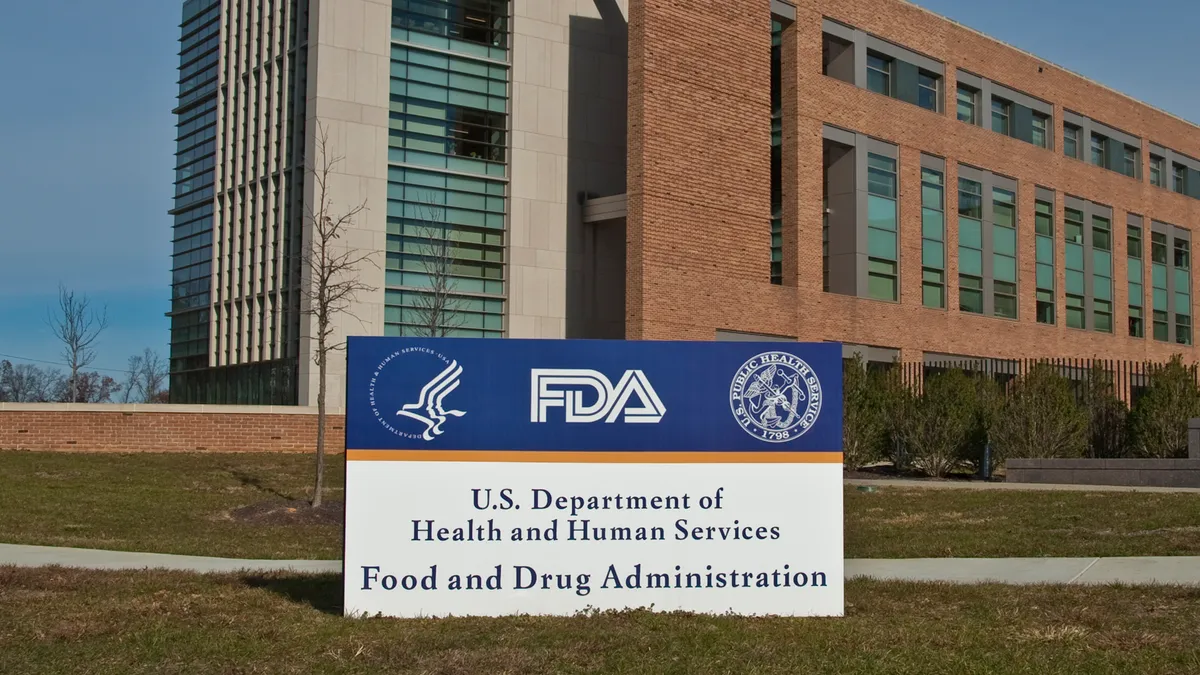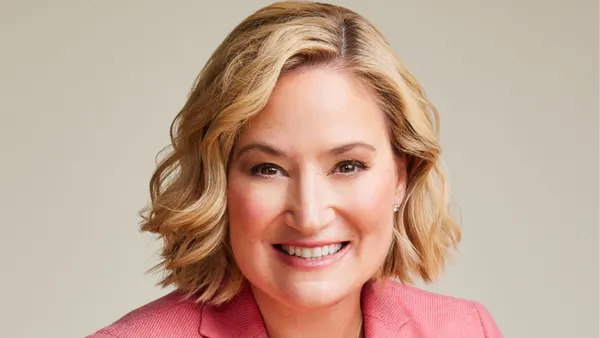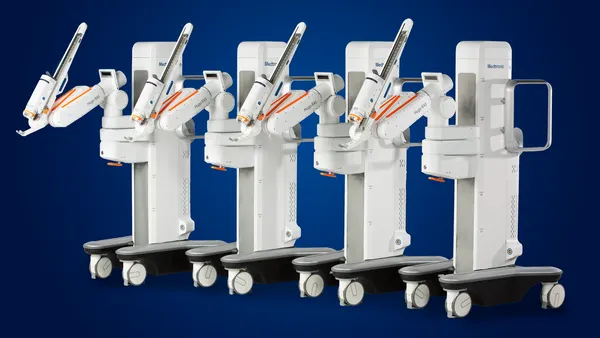Dive Brief:
- FDA on Thursday said it ordered a Beverly Hills, California, cosmetic surgeon to cease the illegal marketing and distribution of an unapproved, implantable device associated with breast augmentation that the doctor invented.
- FDA said Mark Berman claimed the device, called the Pocket Protector, could prevent and treat a complication of breast implant surgery known as capsular contracture, in which scar tissue tightens around the implant.
- The agency also notified Berman in the Feb. 13 warning letter of significant deviations from its quality system requirements and current good manufacturing practices, including procedures to keep implants sterile. Failure to promptly correct the violations could result in seizure, injunction and civil money penalties, FDA warned.
Dive Insight:
FDA said in the warning letter it is not aware of an implantable device intended for use with breast implants that is legally marketed for the use described by the California cosmetic surgeon. The product would therefore require premarket approval as a Class III device. FDA disagreed with Berman's assertion that the Pocket Protector qualifies for a custom device exemption.
Risks associated with breast implants have become a hot-button issue for regulators worldwide amid a rising number of reports potentially tying the devices to a form of non-Hodgkin lymphoma called breast implant-associated anaplastic large cell lymphoma, or BIA-ALCL.
Next month, FDA is set to revisit the safety of breast implants in an advisory committee meeting that will focus on capsular contracture, implant rupture and the use of surgical mesh in breast procedures, in addition to the lymphoma.
Last week, the agency released new data on incidence rates of BIA-ALCL that showed a spike in adverse event reports submitted to the agency. FDA attributed the jump to increased awareness of the disease. Regulators in Canada are also conducting a new safety review of breast implants after a rise in reported cases of BIA-ALCL in the country this year. Like FDA, the Health Canada agency attributed the increase in reports to greater awareness of the implant-related condition.
Breast implants have been generating controversy since the 1980s, generating thousands of lawsuits that ultimately pushed manufacturer Dow Corning into bankruptcy in 1995. Late last year, a study by MD Anderson Cancer Center renewed attention on the risks of the devices, finding an association between the implants and some autoimmune diseases and cancers. Then in November, an exhaustive critique of the medical device industry by an international group of investigative journalists called out breast implant safety as a persistent health concern around the world.
In December, implant maker Allergan lost its CE mark for its textured breast implants following a recall by French regulators, prompting the company to suspend sales of the devices across Europe.
FDA has stepped up scrutiny of devices unique to women's health in general in recent months. Earlier this week, another advisory panel re-examined transvaginal mesh implants in light of thousands of reports of serious injuries over the past decade, including 77 deaths linked to the products. That panel recommended mesh implants remain a treatment option for some pelvic organ prolapse patients but agreed more extensive data on the devices is critical.










